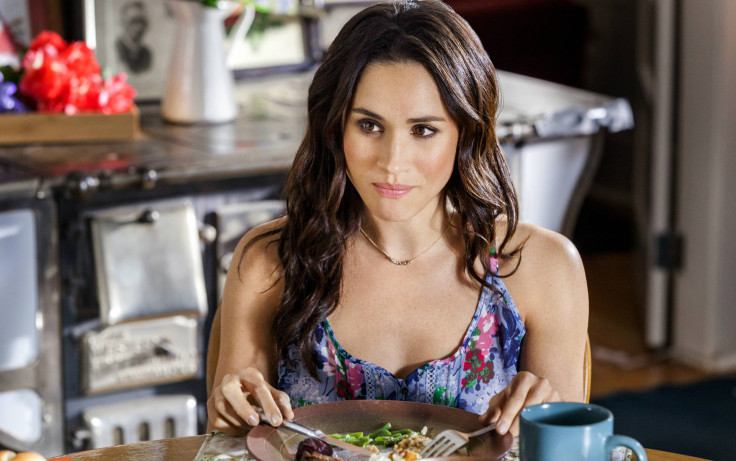Meghan Markle’s Family Is White? Hallmark Seems To Think So

By marrying a royal prince, Meghan Markle is living out a Hallmark movie fantasy. But the part of the Hallmark universe that’s unreal is that in her Hallmark roles, Markle has a white family. The network apparently didn’t see casting the biracial actress as an opportunity to counter the notorious lack of diversity in Hallmark Channel movies.
In her 2014 movie, “When Sparks Fly,” Markle was given two white parents. In her other Hallmark film, “Dater’s Handbook,” which came out in 2016, the actresses who played Markle’s mother and sister were both white. (The character’s father is not depicted.)
William (Bill) Abbott, the president and CEO of Crown Media Family Networks, the parent company of the Hallmark networks, spoke to International Business Times about the decision to cast white family members around an actress whose real-life mother is African-American.
“I know that that’s not an intentional strategy,” he said. “Quite frankly, I don’t even think that Meghan’s background was a consideration when we were writing this story.
“If people are looking for an angle, certainly we can twist anything any way that we want to,” Abbott said. “But I can tell you that certainly when Meghan was hired it wasn’t with the idea that we were going to turn her background into a situation that was not diverse.”
While Abbott recognizes Hallmark Channel is part of what he calls an “industry-wide” diversity casting issue, he thinks the network is doing a good job overall and that the company is taking steps in the right direction.
“The positivity, I think, and the environment that we’ve built over the years, I think is quite special,” he said. “We look to make it more diverse and as we look to make the world a kinder, gentler place where people are included and where there is a lot more consideration given not only to racial diversity, but overall diversity, including people who have special needs, including people who have disabilities. Those are things that are very, very important that we could be called out on as well and that we need to do a better job with.”
Abbott insists that the company’s well on its way to having movies with much more well-rounded casts than before.
“I think overall we look at diversity inclusion on a broader scale and it’s something that we definitely need to do a better job on admittedly, but I think that we’ve taken those steps in 2018,” Abbott added. “I think that when you’re producing 90 movies a year, that’s almost two movies a week, it’s not as easy as it sounds to just all of a sudden start casting in a way might satisfy some of what’s written or put us in a position where we’re immediately reacting to something that was said.”
© Copyright IBTimes 2025. All rights reserved.





















